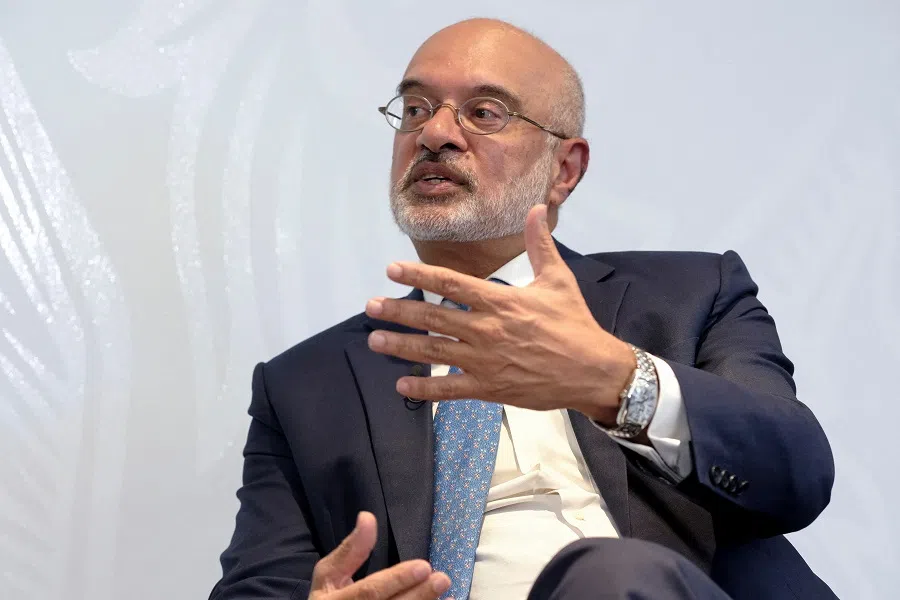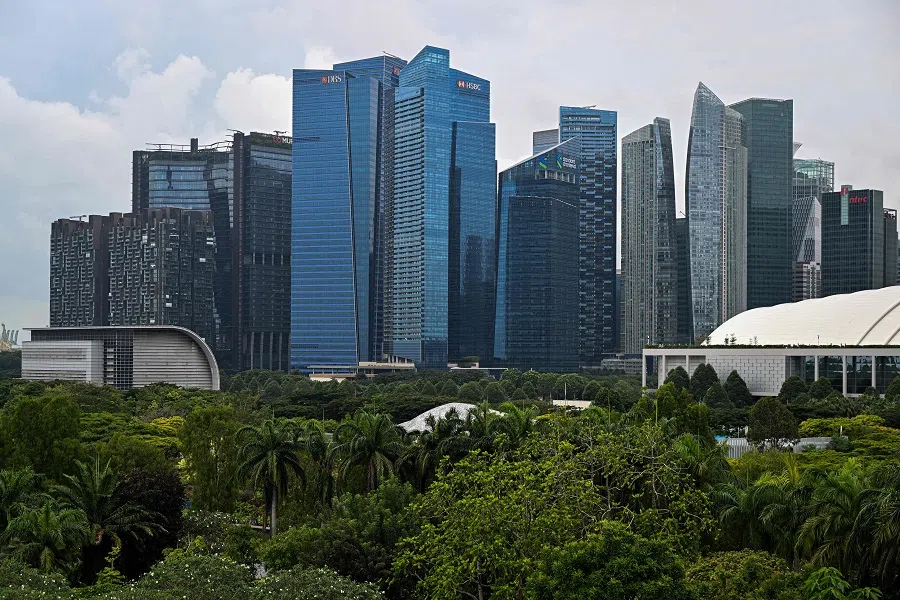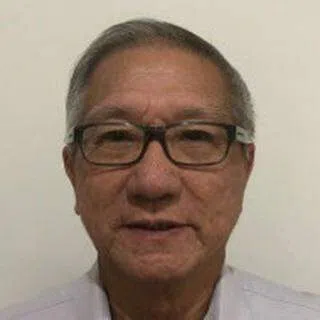Should there be a limit to personal wealth?
Former journalist Goh Choon Kang notes that perhaps the true significance of accumulating personal wealth is to give back to society in one way or another, and to contribute to more equitable distribution of wealth.

In February this year, there were two attention-grabbing headlines related to Singapore's banking industry.
The first was the announcement of the passing of Wee Cho Yaw, the second-generation head of the United Overseas Bank (UOB). The second was an announcement by the largest local bank in Singapore, DBS, that CEO Piyush Gupta would take a 30% cut to his 2023 variable compensation, which amounts to roughly S$4.14 million (US$3.08 million) as a show of accountability for the series of disruptions to digital services for the bank last year. DBS' management committee also collectively saw their 2023 variable compensation reduced by 21%.
According to real-time net worth data announced by Forbes, Wee's net worth reached up to US$7.2 billion, and ranked eighth in Singapore in 2023, and 359 in the global list of richest people. Gupta is renowned for being Singapore's "king of the working class" (打工皇帝). Based on a report by Lianhe Zaobao in April 2023, Gupta's total remuneration for 2022 amounted to S$15.38 million. Behind him was UOB deputy chairman Wee Ee Cheong, with a total remuneration of S$14.24 million.
Poor get poorer, while the rich get richer
The total remuneration for Jane Fraser, CEO of the US's Citigroup, is even more eye-popping, at up to US$26 million. Big corporations in Singapore adopt a US model; besides receiving a fixed annual income (base salary), what is more crucial for top executives are the shares, bonuses, club, car and driver subsidies, among other additional benefits doled out by the company in accordance with the firm's performance, collectively called variable compensation.
Executives are, after all, salaried employees working in service of a firm's boss or its shareholders. Hence, their pay cannot compare to the profits earned by the bigwigs of major companies. The Guardian from the UK reported on 27 December 2023 that while the cost of living crisis has made it a struggle for many to put food on the table, for the world's wealthiest, such as US tech billionaires and Russian oligarchs, they mostly got richer in 2023 - of the top 500, 77% grew richer.
This is what is meant by the poor get poorer, while the rich get richer. According to data by international social welfare organisation Global Citizen, the richest 1% of the world own nearly half the world's wealth. 81 billionaires have more wealth than 50% of the world combined. Extreme wealth and extreme poverty have seen a sharp simultaneous increase for the first time in the past 25 years. The problem of global economic and social inequality is growing by the day.
Giving back to society and country is what we should do; it is a traditional value for us. Otherwise, what is the point of accumulating wealth?

According to Bloomberg, which tracks the daily statistics of 500 billionaires globally, Elon Musk used to lead the pack; as of 4 March, Amazon CEO Jeff Bezos with a net worth of US$200 billion is now ahead of Musk by US$2 billion. Meta CEO Mark Zuckerberg is also up there, with Meta's value soaring by 172% which led to his fortune leaping by 184%, from US$45 billion to US$128 billion. Among the top ten billionaires globally, nine are from the US.
The late Wee Cho Yaw with US$7.2 billion in net worth cannot measure up to the wealthiest globally, but to the average salaried worker, that would be an astronomical figure. Yet, this wealth means nothing to Wee personally at this point. As the saying goes, we come into this world with nothing, and we will leave it the same way.
Nobody knows how Wee's relations will use or divide up this large inheritance. But hypothetically, if Wee made use of his wealth by donating to various charities, and helping those in poverty while he was still alive, there would certainly be many beneficiaries. For a salaried worker like Gupta, his annual expenses without a doubt would not amount to S$10 million; similarly, if he could use money that he would not be able to spend in his lifetime for charity, many would benefit from it.
In the recently published Limitarianism, The Case Against Extreme Wealth, she put forth that one's personal wealth should not exceed US$10 million, which is her proposed limit - in other words, there should be no such thing as billionaires.
What is the point of accumulating wealth?
Undoubtedly, regardless of whether one becomes wealthy by being a businessman, or makes it by working for others, by and large, becoming a billionaire depends on one's intelligence and capabilities. But without the social environment and system that gave them a chance to demonstrate their abilities, they would not have made such careers for themselves. As the saying goes, we take from society and give back to society. Giving back to society and country is what we should do; it is a traditional value for us. Otherwise, what is the point of accumulating wealth?
Some might also ask: is there a need for the rich to accumulate so much wealth in their lifetime? Wealth is overly concentrated in the hands of the few; these people not only possess fortunes to rival a country (many countries have national coffers that are nearly empty, with budgets that run into the red year after year), but they can also manipulate politics and sway government policies (money politics). The exorbitant remuneration that executives of big firms enjoy is disproportionate to the salaries of other workers, a clear sign of the "unjust and unequal" distribution of wealth.
Some academics have begun to explore such a topic: should there be a limit to the accumulation of personal wealth? Those that raise such a question would have immediately been cast by neoliberalists as hating the rich or as "communists". However, Dutch political philosopher Ingrid Robeyns has been studying this issue for the past decade, and offered her suggestions on setting a limit for personal wealth.
In the recently published Limitarianism, The Case Against Extreme Wealth, she put forth that one's personal wealth should not exceed US$10 million, which is her proposed limit - in other words, there should be no such thing as billionaires. If one's accumulation of wealth exceeds this limit, it should be subject to tax (such as wealth tax) among other measures to redistribute the resources back to society.

Of course, Robeyns is keenly aware that this is impossible to implement, but setting a limit is a way to set an ideal goal to work towards. She felt that for practical implementation, it would require action to be taken on three fronts. First, structural measures: there would be a need to ensure that societal and economical systems can provide truly fair opportunities for all people, such as affordable childcare, free higher education and comprehensive strategies to combat poverty. Second, fiscal measures. Third, moral action: keeping in mind ethical limits, or in other words, moderation in all matters.
... in this era of globalisation, it seems difficult to meet Robeyns suggestion of "limitarianism". The rich can easily set up shop at any tax haven scattered all around the globe, and move their assets.
Governments and the rich
Wealth inequality is a universal phenomenon; areas that adopt capitalism and a market economy all exhibit signs of this inequality, even among different political systems. But the actual circumstances are still different. For instance, there are numerous differences between Europe and the US; the US is an extreme example of capitalism, whereas countries in Northern Europe have a very solid social welfare system.
In the US, press freedom reigns supreme, and it advocates for a small (that is, weak) government - in fact, it is the businessmen that have the biggest room to operate to reap profits in this situation, with the government powerless to control them. One downside to this is that businessmen are able to sway politics, and another flaw is that those in charge of businesses can arbitrarily fire employees, cut salaries, or add on to the workload of employees in order to attain and flaunt results.
Singapore's situation is also very different from the US. We believe in the functional importance of both the government and the unions; statesmen have a strong sense of mission, and politics would naturally not be swayed by businessmen, with employers usually having to negotiate with the unions as well. Thus, the government is capable of correcting the various gaps caused by the free market through an array of administrative and financial measures, appropriately redistributing wealth to the best of its ability. The country's reserves as well as its investment returns bring benefits to all people, and has also become a mechanism for the transfer of national wealth from generation to generation. Our unions also protect the interests of our workers. Singapore has pretty much accomplished Robeyns' first point.

But in this era of globalisation, it seems difficult to meet Robeyns suggestion of "limitarianism". The rich can easily set up shop at any tax haven scattered all around the globe, and move their assets. In recent years, Singapore has also offered tax breaks, and attracted quite a few of the world's richest to set up roots here or have their family office here. However, the reason the government has done so is to attract long term investment. The government also encourages the wealthy to step up on engagement in social services and charity businesses.
We should encourage firms to distribute more of their profits to low-income employees, and give back to society.
Can we do better?
Indeed, if a businessman were to strive hard daily to make money solely for the purpose of satisfying material wants and the desire to accumulate wealth, there is not much meaning to such a life. A friend commented that a late billionaire in his golden years after retirement found that he was bored stiff at home, to the point that he questioned what to do with his time. Alas, for life to reach such a stage - what use is one's riches?
Moreover, when businesses make money and only reward the higher-ups while neglecting the average low-income employee, this is also unacceptable. We are fortunate to have the tripartite negotiation mechanisms of union, employers and the government; each year, the National Wages Council would recommend wages based on actual circumstances, so that even the average worker can benefit from economic growth.
We should encourage firms to distribute more of their profits to low-income employees, and give back to society. They should not be concerned only with the interests of shareholders, or let the higher-ups reap all the "credit" and rewards. In a rare move, the three major local banks recently issued an additional month of bonus for junior employees to help them cope with rising costs of living. This is a positive move, but in actual figures, this sum of money is but barely a fraction of the billions in profits that the three major banks make annually. They are certainly capable of doing more.
As opposed to restricting the accumulation of personal wealth, we should encourage the rich to spend their wealth on social welfare as much as possible. Of course, this is an issue of ethics; to that end, we must return to our excellent traditional values, and not repeat the mistakes made by other countries.
This article was first published in Lianhe Zaobao as "个人财富也须有限度?".



![[Big read] When the Arctic opens, what happens to Singapore?](https://cassette.sphdigital.com.sg/image/thinkchina/da65edebca34645c711c55e83e9877109b3c53847ebb1305573974651df1d13a)
![[Video] George Yeo: America’s deep pain — and why China won’t colonise](https://cassette.sphdigital.com.sg/image/thinkchina/15083e45d96c12390bdea6af2daf19fd9fcd875aa44a0f92796f34e3dad561cc)
